A business broker helps business owners sell their companies and assists buyers in finding businesses to purchase. They handle critical tasks like valuing businesses, marketing them confidentially, negotiating deals, and managing the transaction process from start to finish. Think of them as the real estate agents of the business world, but for businesses instead of properties.
Here’s a quick breakdown of what they do:
- Business Valuation: Determine a fair market value based on financial records, market data, and intangible assets.
- Marketing: Create confidential marketing materials and connect sellers with qualified buyers.
- Negotiation: Facilitate discussions to finalize terms like price, financing, and contingencies.
- Due Diligence: Organize and review documents, ensuring all legal and financial matters are in order.
- Closing Support: Coordinate with attorneys, accountants, and buyers to finalize the sale.
For sellers, brokers maximize the business’s appeal to buyers, handle marketing discreetly, and ensure the process runs smoothly. For buyers, they identify opportunities, assist with financing, and guide negotiations.
Hiring a broker is especially helpful if you need to maintain confidentiality, face complex deal structures, or lack experience with selling or buying businesses. Their expertise can save time and reduce risks, making the process more efficient and manageable.
Day in the Life of a Business Broker
Main Duties of a Business Broker
Business brokers handle every phase of a transaction, from the initial evaluation of a business to the final handshake at closing. Their work ensures that both buyers and sellers navigate these complex processes smoothly and efficiently.
Business Valuation
Getting the valuation right is the cornerstone of any successful transaction. Business brokers use a mix of financial analysis and market insights to determine a company's fair market value.
The process starts with a deep dive into 3–5 years of financial records. Brokers then apply standard valuation methods, such as asset-based approaches, earnings multiples, and discounted cash flow analysis, to arrive at an accurate figure.
Market data plays a crucial role here too. Brokers often maintain databases of recent sales within similar industries and business sizes. This allows them to benchmark valuations against real-world transactions while considering broader factors like market conditions, industry trends, and economic shifts that could influence buyer interest or seller expectations.
But it's not just about the numbers. Intangible assets - like customer relationships, brand reputation, and operational systems - are also assessed, especially in industries that rely heavily on personal connections. For example, in service-based businesses, these intangible factors can significantly affect the overall value.
While straightforward businesses might be fully valued within a week or two, more complex operations with multiple revenue streams or unique assets can take longer. This upfront effort ensures pricing aligns with market realities, reducing the risk of deals falling apart later.
Once the valuation is set, brokers move on to crafting a marketing strategy to attract buyers.
Marketing and Deal Sourcing
After establishing the business's value, brokers focus on connecting the right buyers and sellers - all while maintaining strict confidentiality. Protecting the seller’s privacy is critical to ensure that the business continues operating without disruption.
To achieve this, brokers create anonymous marketing materials, often referred to as "blind profiles." These documents highlight essential metrics like financial performance, industry sector, geographic region, and growth potential but leave out identifying details such as the company name or exact location.
Marketing strategies often combine traditional methods with digital outreach to cast a wider net for potential buyers. At the same time, brokers carefully screen interested parties to ensure they meet financial and strategic criteria before disclosing sensitive information.
For buyers, brokers act as matchmakers, identifying opportunities that align with their goals. They conduct preliminary assessments and only present businesses that fit the buyer's financial capacity and acquisition strategy. On the seller side, brokers often maintain relationships with business owners who might consider selling in the future, creating a pipeline of potential opportunities.
Negotiation and Transaction Management
Negotiations are where the broker’s expertise truly shines. They manage the intricate back-and-forth between buyers and sellers to craft deals that meet the needs of both parties.
"Are you looking for someone to handle complex negotiations with ease? A seasoned business broker is your go-to expert!" – HedgeStone
While the purchase price is often the focal point, other elements like payment terms, contingencies, and warranties are equally critical. Brokers also help structure creative financing options - such as seller financing, earnouts, or performance-based adjustments - to bridge gaps in expectations.
Managing a transaction involves juggling many moving parts. Brokers set and enforce timelines for key milestones like financing approvals, due diligence, and document preparation. Acting as intermediaries, they smooth communication between parties and step in with creative solutions when disagreements arise.
Statistics show that only 20% to 30% of businesses listed for sale actually close. Skilled brokers help improve these odds by anticipating and overcoming the many challenges that can derail a deal.
Once the terms are finalized, brokers shift their focus to ensuring a seamless closing process.
Due Diligence and Closing Support
Due diligence is a critical step that ensures both buyer and seller have a clear understanding of the business and its operations. Brokers play a central role in coordinating this phase by organizing documents, inspections, and addressing any concerns that arise.
The due diligence checklist typically includes financial statements, legal documents, operational procedures, customer contracts, and employee agreements. Brokers store these materials in secure data rooms, controlling access and tracking activity to maintain confidentiality.
Compliance is another key area. Brokers verify that all necessary licenses, permits, and tax obligations are in place, addressing any legal or regulatory issues that could complicate the transaction.
"Your advisors' expertise will help you understand the implications of various terms and protect your interests throughout the process. Effective negotiation can lead to a favorable outcome and a smoother transition." – Jane Johnson, Business Transition Academy
As the deal approaches closing, brokers coordinate with attorneys, accountants, and lenders to finalize all necessary documents. This includes preparing purchase agreements, transferring ownership records, and overseeing financial transactions.
Throughout the closing process, brokers manage communication among all parties, resolving last-minute issues such as financing delays or document discrepancies. Their attention to detail ensures that all legal and contractual requirements are met, helping to avoid future disputes or complications.
How Business Brokers Help Buyers and Sellers
Business brokers play a crucial role in assisting both buyers and sellers, tailoring their services to meet the unique needs of each party. While both groups benefit from professional expertise, the specific ways brokers support them differ significantly. Here's a closer look at how brokers help sellers and buyers navigate the complexities of business transactions.
Services for Sellers
For business owners looking to sell, brokers provide a range of services designed to prepare the business for sale and attract serious buyers. They start by evaluating the company’s financial health, identifying areas for improvement, and ensuring all records are organized and accurate. This includes analyzing comparable sales, industry multiples, and Seller's Discretionary Earnings (SDE) to determine a competitive and realistic asking price.
Marketing is another key area where brokers assist sellers. They create detailed Confidential Business Reviews that highlight the company’s financial performance, growth potential, and operational strengths - all while keeping identifying details private. By leveraging both online and offline marketing strategies, as well as tapping into their network of qualified buyers, brokers ensure the business is presented to the right audience. This targeted approach helps sellers attract serious prospects who are ready to make a deal.
Services for Buyers
For buyers, the process of finding the right business and securing financing can be daunting. Brokers simplify this by maintaining extensive databases of businesses for sale, including opportunities that may not be publicly listed. They match buyers with businesses that align with their financial capacity, industry interests, and long-term goals.
Brokers also provide invaluable support during the decision-making process. They conduct financial analyses, review cash flow trends, and assess potential risks and opportunities, helping buyers make informed choices. Additionally, brokers assist with financing options, whether through SBA loans, seller financing, or other methods, and guide buyers through negotiations to secure favorable terms.
Buyer vs. Seller Services Comparison
| Service Area | For Sellers | For Buyers |
|---|---|---|
| Valuation | Detailed appraisal using comparable sales and industry data | Assistance in evaluating asking prices with market insights |
| Marketing | Confidential campaigns targeting qualified buyers | Access to exclusive, off-market opportunities |
| Documentation | Preparation of financial packages and Confidential Business Reviews | Support with due diligence and document review |
| Financing | Structuring seller financing and payment terms | Guidance on acquisition financing and lender connections |
| Negotiation | Managing offers to maximize sale price | Ensuring favorable terms and protecting buyer interests |
| Timeline | Streamlining the sale process to minimize disruption | Coordinating acquisition timelines with financing and transition plans |
This side-by-side comparison shows how brokers adapt their strategies to meet the distinct needs of sellers and buyers. By offering specialized support to each party, brokers ensure smoother transactions and better outcomes for everyone involved.
sbb-itb-a3ef7c1
The Business Sale Process with a Broker
Selling a business can be a complex journey, but a broker simplifies the process. They bring structure to what can feel like chaos, guiding both buyers and sellers through every step while taking care of the administrative tasks that often overwhelm those new to the process.
Step-by-Step Process
Selling a business with the help of a broker typically unfolds over several months, with each stage building toward a successful conclusion.
Initial Consultation and Engagement kicks off the process. This is where brokers align with sellers to understand their goals, timeline, and expectations. For buyers, brokers focus on identifying acquisition criteria, setting the stage for a smooth transaction.
Business Preparation and Valuation comes next. Brokers dive deep into the company’s financials, reviewing tax returns, profit and loss statements, and cash flow reports from recent years. They also identify potential issues - like reliance on a single customer or outdated equipment - that could affect the sale. This step ensures the business is priced realistically to attract serious buyers.
Marketing and Buyer Identification is where the action ramps up. Brokers create confidential marketing materials and tap into their networks, online platforms, and industry contacts to find qualified buyers. They screen inquiries, arrange tours, and connect sellers with prospects who are ready to move forward.
Negotiation and Letter of Intent marks a critical turning point. Brokers facilitate discussions, helping both sides agree on key terms like price, financing, and transition plans. Once there’s a mutual understanding, they assist in drafting the Letter of Intent (LOI), which outlines the deal’s structure and signals the start of due diligence. This structured approach reduces misunderstandings and keeps the deal on track.
Due Diligence and Documentation is a detailed phase that can span several weeks. Brokers manage requests for financial and operational documents, coordinate meetings, and assist buyers with financing applications. They work to ensure all paperwork is completed accurately and on time. Once due diligence is complete, the process shifts toward finalizing the sale.
Closing and Transition wraps up the transaction. Brokers collaborate with attorneys, accountants, and lenders to ensure all conditions are met. They help organize final walkthroughs, oversee the transfer of funds, and facilitate the handover of keys, passwords, and other essential assets. This final step signifies the end of the process and the start of a new chapter for both buyer and seller.
Using Technology to Improve the Process
Technology has revolutionized the way brokers handle transactions, speeding up tasks that used to be time-consuming and cumbersome.
AI-powered valuation tools now provide quick, data-driven pricing insights by analyzing comparable sales, industry trends, and market data. This helps sellers set realistic expectations and attract the right buyers.
Secure data rooms have replaced traditional document exchanges. These digital spaces allow brokers to organize sensitive materials - like financial records and contracts - in a secure, permission-controlled environment. Buyers gain instant access to the information they need, while sellers can track who views their data.
Automated deal-matching tools also boost efficiency. These systems use advanced search capabilities, including integrations like Google Maps API, to connect buyers with businesses that meet their criteria. Off-market opportunities that might otherwise go unnoticed are now easier to uncover.
Integrated financing tools streamline the pre-qualification process. For example, platforms with Plaid integration can verify financials quickly, reducing what used to take weeks into just a few days. Brokers can then present buyers with a variety of financing options, from SBA loans to seller-financed deals.
Pipeline management systems keep everything organized. With centralized dashboards, brokers can monitor multiple transactions at once, automate follow-ups, and track deadlines. Real-time collaboration features ensure that buyers, sellers, attorneys, and lenders stay aligned throughout the process.
These advancements make transactions more efficient and transparent. Brokers can handle more clients without sacrificing service quality, while buyers and sellers benefit from quicker responses, better organization, and clearer communication every step of the way.
When to Hire a Business Broker
Deciding whether to enlist a business broker often depends on the complexity of your transaction. Some sales are straightforward enough to manage on your own, but others can benefit immensely from professional expertise. Knowing when to bring in a broker can save you time, money, and unnecessary headaches.
Common Scenarios for Hiring a Broker
There are several situations where a broker's expertise can make a big difference:
- Maintaining confidentiality during a sale: Selling a business often requires discretion. A broker acts as a buffer, marketing your business without revealing sensitive details. They handle initial buyer inquiries, screen potential buyers, and only introduce serious candidates after ensuring proper non-disclosure agreements are in place.
- Maximizing the value of your business: When significant assets are involved, brokers use their market insights to position your business attractively. They know what buyers value most and can highlight those aspects, often attracting buyers willing to pay a premium.
- Navigating complex deal structures: Transactions that involve seller financing, earnouts, or multiple entities can get complicated fast. Brokers coordinate with attorneys, accountants, and lenders to craft deals that work for everyone while minimizing legal and tax risks.
- Managing time constraints: Selling a business while running it is a monumental task. Brokers take on the responsibilities of marketing, screening buyers, and handling due diligence, allowing you to focus on your day-to-day operations.
- Simplifying the process for first-time sellers: If this is your first sale, a broker can guide you through industry norms, help you avoid common missteps, and make sure no critical details slip through the cracks.
Beyond these scenarios, there are also practical signs that indicate when hiring a broker might be the right move.
Signs You Need a Broker
Here are some clear signals that professional help could be essential:
- Challenges in determining fair market value: If you're struggling to figure out what your business is worth - perhaps due to unique characteristics or conflicting opinions - a broker can help. They have access to comprehensive sales data and understand how market factors influence pricing.
- Limited access to qualified buyers: If your personal contacts, online listings, or local ads aren’t bringing in serious prospects, a broker can tap into their established networks, connecting you with active buyers, investment groups, and other brokers.
- Inexperience with high-stakes negotiations: Negotiating can be tricky, especially if you're not familiar with the process. Brokers bring objectivity and experience, helping you focus on critical terms and identify where compromise might make sense.
- Regulatory hurdles: Businesses that require licenses, permits, or government contracts often face transfer requirements that can be overwhelming. Brokers experienced in these areas can help navigate the red tape.
- Geographic challenges: If you're selling to an out-of-state buyer or considering a purchase in an unfamiliar market, brokers provide local market insights and manage activities across different regions or time zones.
- Complex financials: Businesses with multiple revenue streams, seasonal patterns, or unconventional accounting practices can be hard to present to buyers. Brokers know how to showcase your financials in a way that emphasizes strengths while addressing concerns upfront.
Ultimately, the decision to hire a broker often comes down to weighing their commission against the value they bring. For simpler deals, you might not need their services. But for larger or more intricate transactions, a broker’s expertise can lead to better outcomes, smoother processes, and fewer risks of the deal falling apart.
Conclusion: Benefits of Working with a Business Broker
Navigating the sale or purchase of a business can feel like a daunting task, but that’s where a business broker steps in to make all the difference. They transform what might seem like an overwhelming process into a smooth and professional transaction.
A broker’s real strength lies in their ability to juggle numerous complex tasks with precision. From conducting accurate valuations to maintaining confidentiality during marketing and thoroughly screening potential buyers, they handle the heavy lifting. Plus, their role as negotiators injects a level of objectivity into what can often be emotionally charged discussions, ensuring the focus remains on securing the best possible deal while sidestepping common mistakes.
Beyond the mechanics of the deal, brokers serve as invaluable guides through unfamiliar territory. They’re well-versed in industry standards, quick to identify potential issues, and ensure that all legal and documentation requirements are handled correctly. Their expertise becomes especially critical in scenarios involving intricate financial arrangements, licensing transfers, or transactions spanning multiple states.
The time savings alone can make their commission worthwhile. Selling a business while keeping day-to-day operations running smoothly is no small feat. Brokers take on responsibilities like marketing, initial buyer interactions, coordinating due diligence, and managing closing logistics - allowing business owners to focus on what they do best.
Most importantly, brokers are adept at maximizing outcomes. Their market knowledge and negotiation skills often lead to higher sale prices, better terms, and quicker closings. On the flip side, buyers gain access to off-market opportunities and benefit from brokers' ability to structure deals that align with their financial goals and growth plans.
Whether you’re selling a business you’ve poured years of effort into or buying your first venture, a skilled business broker brings the expertise, connections, and insight needed to navigate today’s competitive market with confidence.
FAQs
How do business brokers determine the fair market value of a business, and what factors influence this process?
Business brokers calculate a business's fair market value by analyzing a mix of financial data, operational details, and market trends. Two common methods they use are the market-based approach, which compares the business to similar ones recently sold, and the income-based approach, which focuses on estimating future earnings.
Several factors play a role in this process. Brokers examine financial performance - including revenue, profit margins, and cash flow - along with the business’s growth potential and the state of its industry. They also consider operational efficiency, the quality of the customer base, and intangible assets like brand reputation. By combining these elements, brokers arrive at a valuation that represents the business's value in today's market.
What are the advantages of using a business broker for first-time sellers, and how can they help avoid common mistakes?
For those selling a business for the first time, working with a business broker can make the process much smoother and less overwhelming. These professionals bring deep knowledge of business valuation, ensuring your business is priced accurately and competitively in the market. Plus, they tap into their network of qualified buyers, saving you the hassle of searching for and vetting potential buyers on your own.
Brokers also take charge of negotiations and structuring the deal, aiming to secure terms that work in your favor while keeping the entire process confidential. By handling the finer details of the sale, they free you up to continue focusing on running your business without unnecessary distractions. Their expertise can help you avoid common missteps, like undervaluing your business or wasting time with unqualified buyers, ultimately making the selling journey far less stressful.
When is it a good idea to work with a business broker instead of buying or selling a business on your own?
Working with a business broker can make a world of difference, especially in situations where their skills and knowledge are essential. For example, when it comes to complex or high-value transactions, brokers bring their expertise to the table, handling detailed negotiations and managing the mountain of paperwork that comes with such deals. This helps ensure the process stays on track and avoids unnecessary hiccups.
Another major benefit? Confidentiality. Brokers are skilled at keeping sensitive business information under wraps, protecting your interests throughout the entire process.
On top of that, brokers have access to broad networks of buyers and sellers, which means they can connect you with the right people faster than you might on your own. If you’re pressed for time or don’t have much experience in buying or selling a business, a broker can take care of everything - from determining the value of the business to finalizing the deal - so you can stay focused on what matters most to you, without the extra stress.


%20%20Process%2C%20Valuation%20%26%20Legal%20Checklist.png)

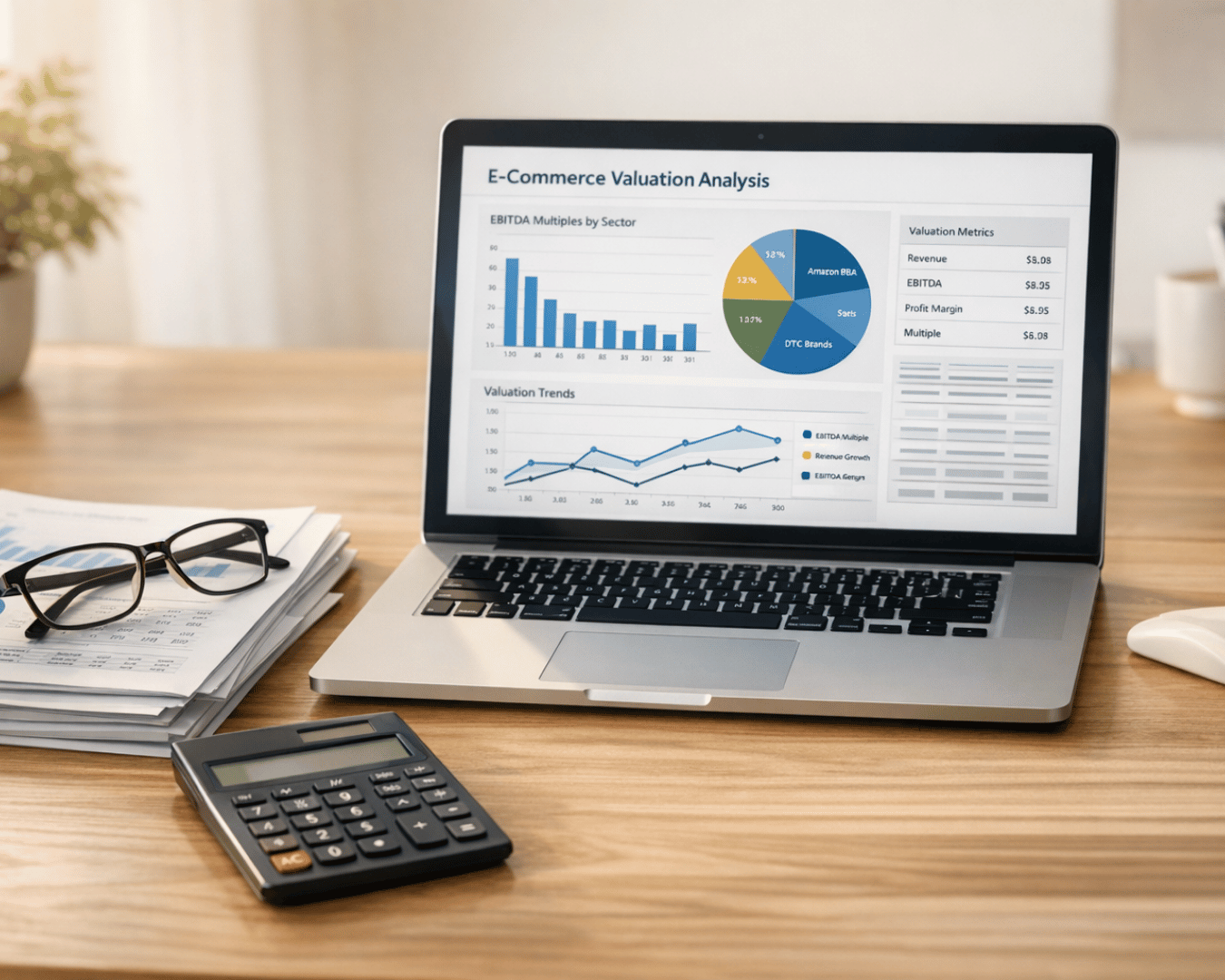









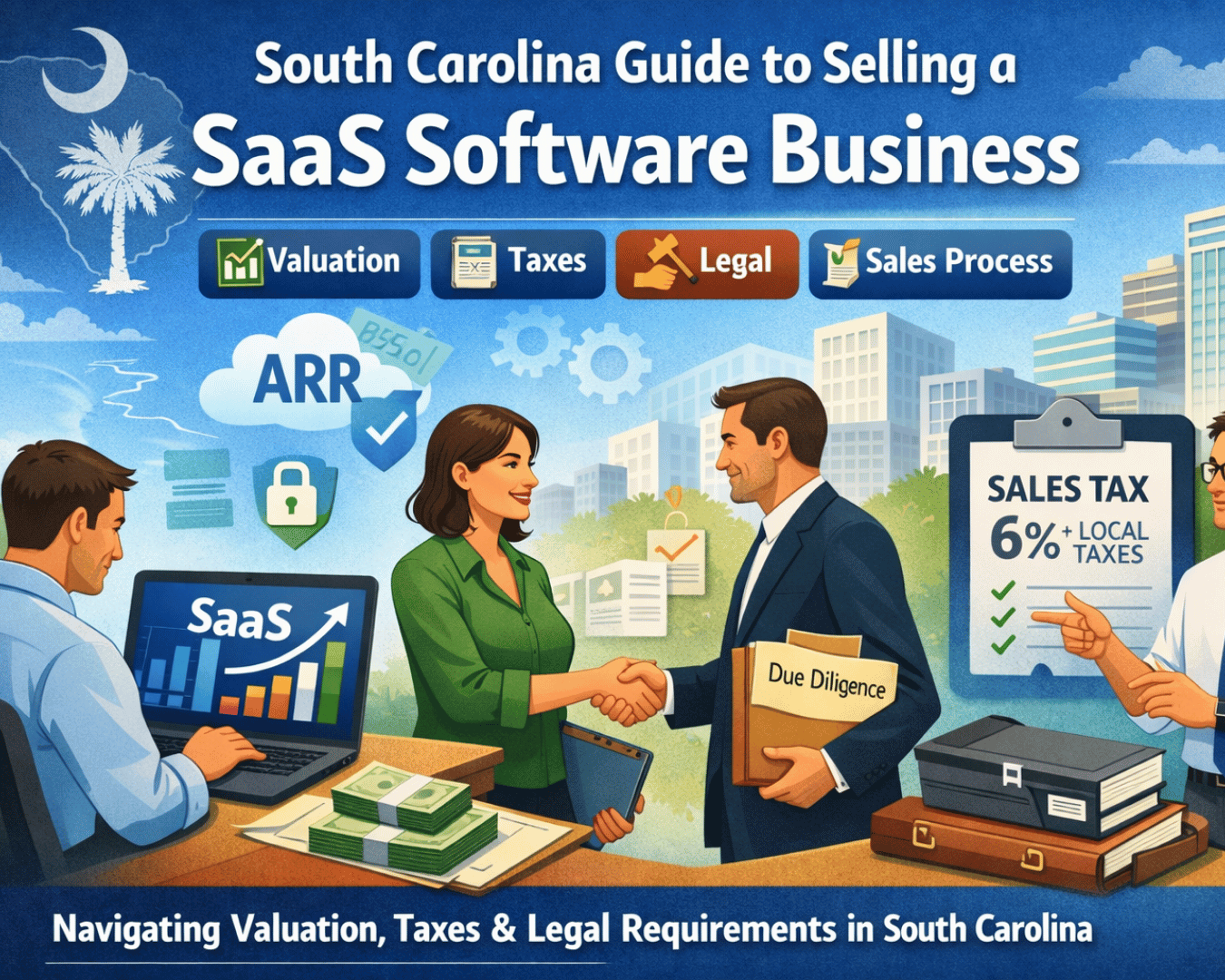







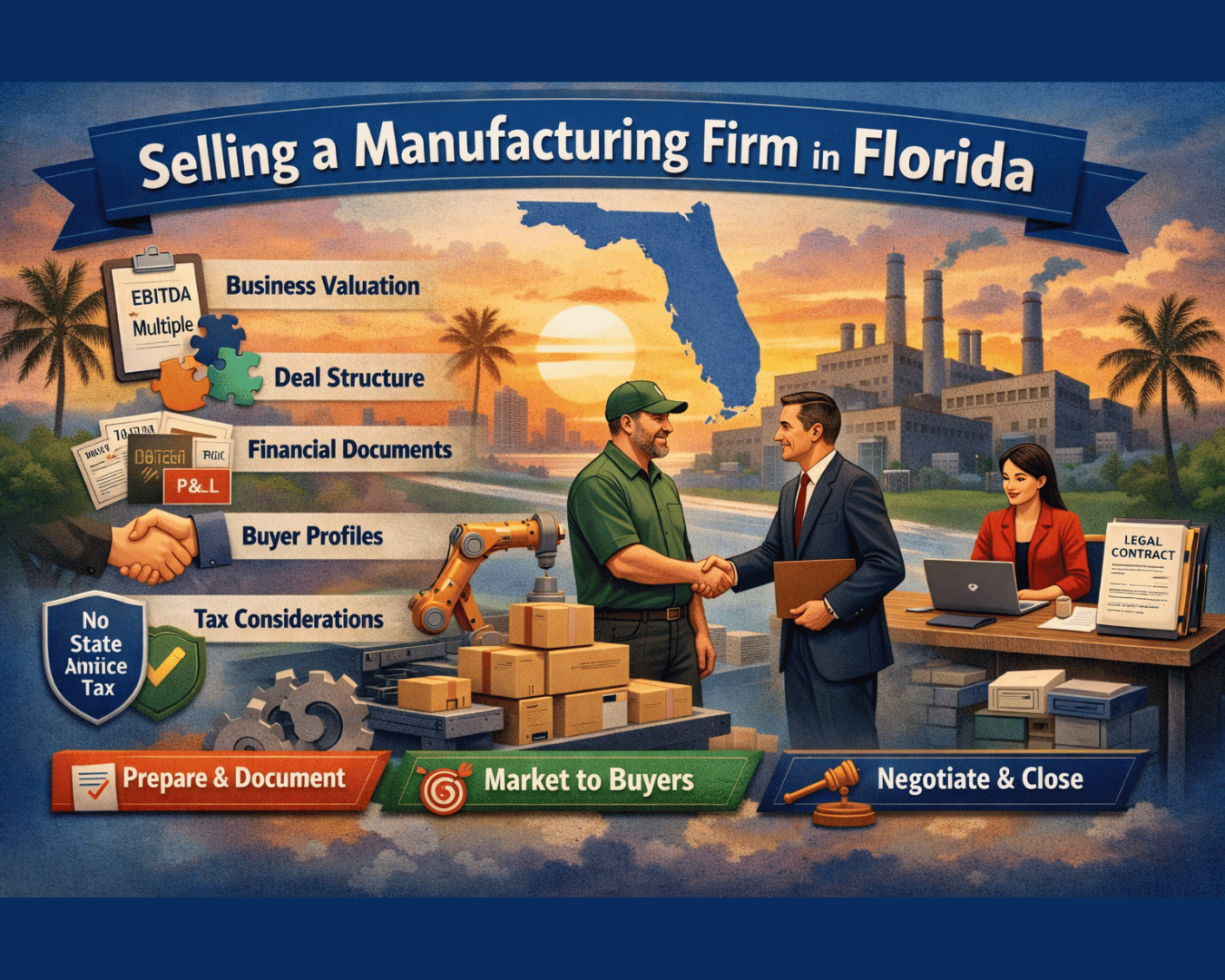
%20in%20a%20%2420M%20Sale..png)
%20vs.%20Conventional%20Loans%20for%20business%20acquisition.png)






















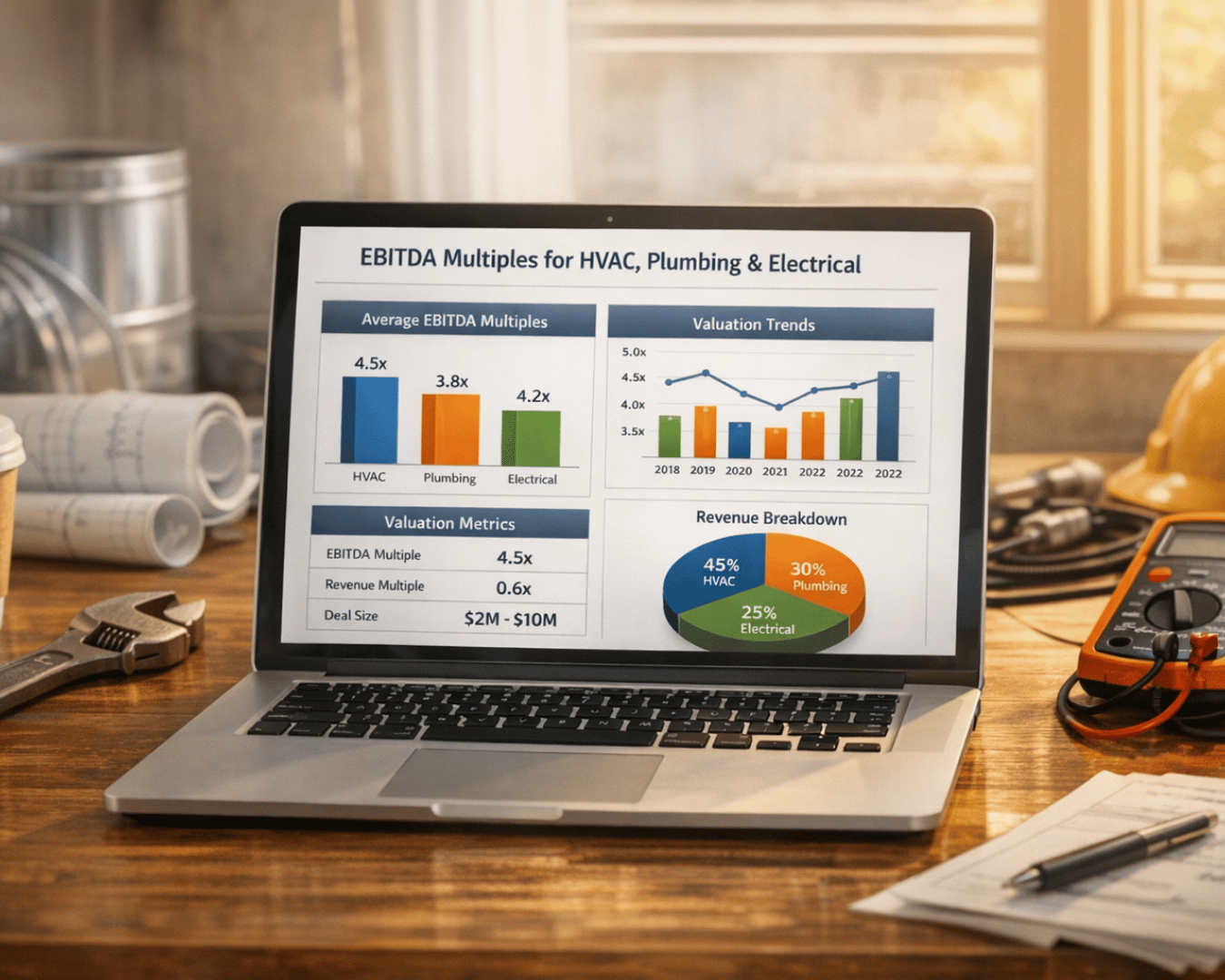
.png)


.png)
.png)

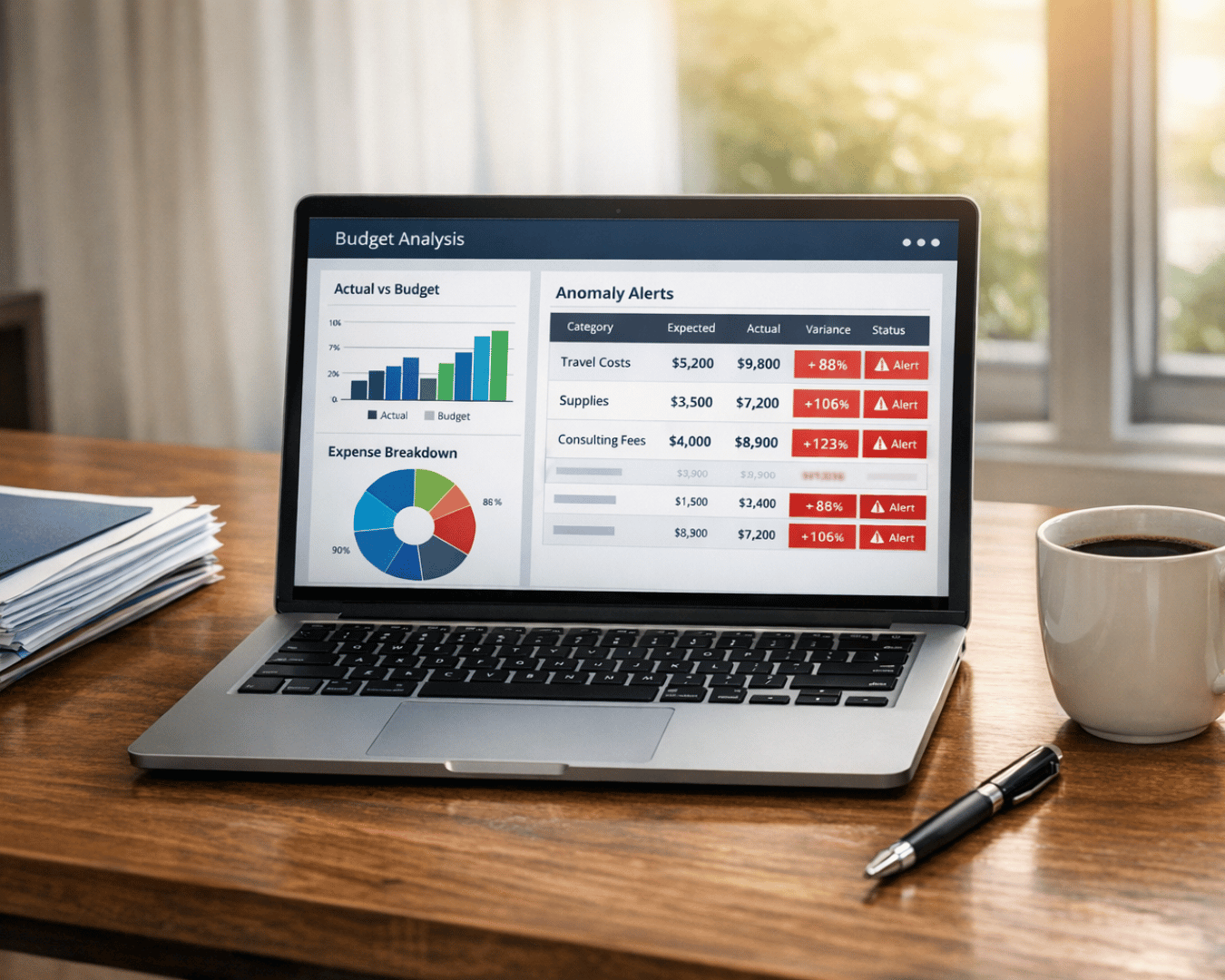
































.png)





















